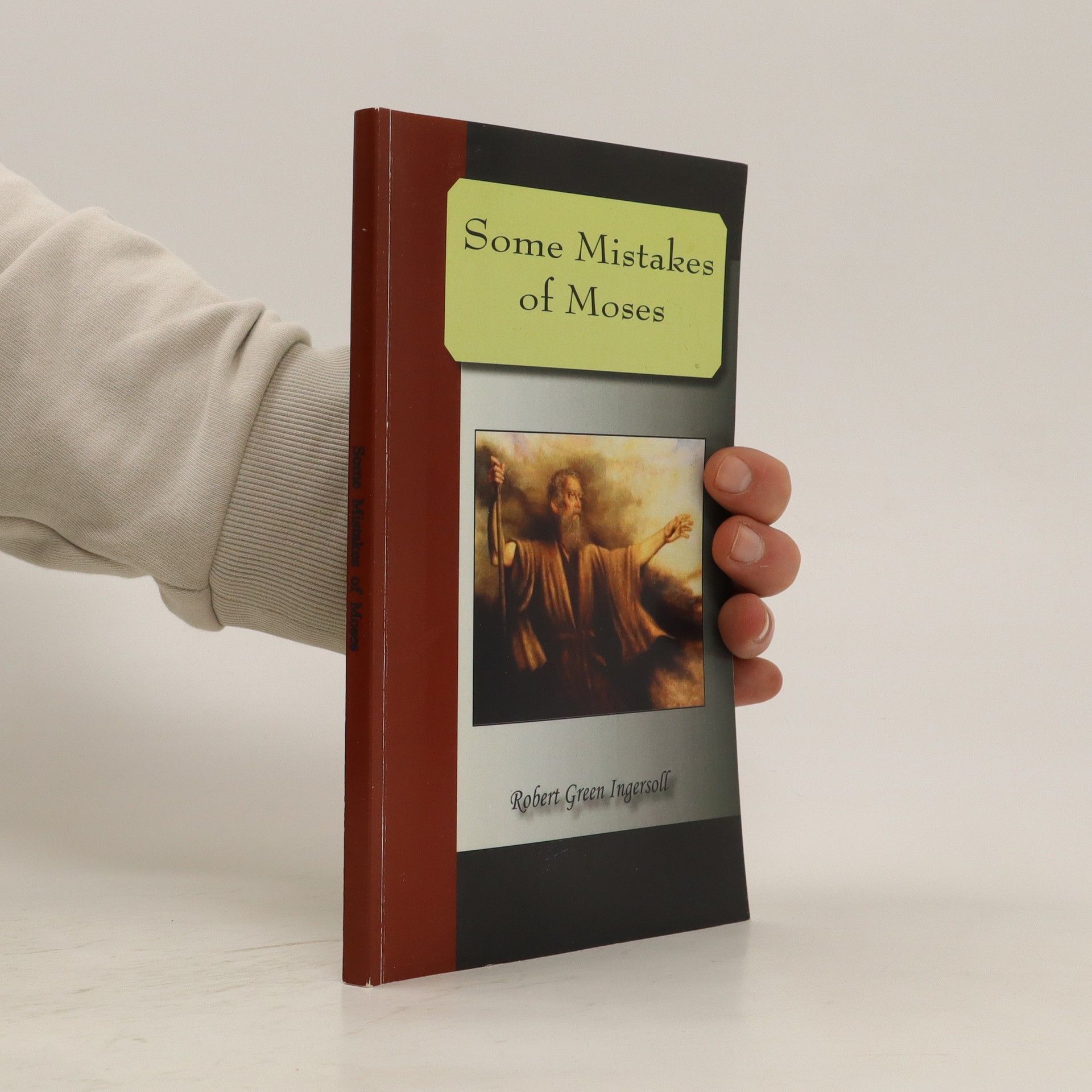Some Mistakes of Moses
- 136pages
- 5 heures de lecture
Robert G. Ingersoll fut le plus éminent défenseur de la libre pensée au 19e siècle. Ses conférences étendues et captivantes à travers le pays, souvent axées sur la critique de la Bible et de la religion, attiraient d'immenses foules. Ferme partisan de la raison et critique de la superstition, Ingersoll fut un champion intrépide du progrès et de la dignité humaine. Il fut également un fervent défenseur de l'égalité des droits pour les Noirs et les femmes, incarnant ses convictions d'humanité et de justice.






The collection features the speeches and writings of Robert G. Ingersoll, focusing on his critiques of organized religion and advocacy for free thought and rationality. He argues that religion is based on blind faith, contributing to societal issues, and promotes a society grounded in human reason and science. Ingersoll addresses contemporary topics such as women's rights and government roles, advocating for individual freedom and equal rights for all, regardless of background. His writing is noted for its clarity, humor, and enduring relevance.
This volume features a diverse collection of speeches and essays by 19th-century orator Robert G. Ingersoll, focusing on themes of skepticism towards religion and the promotion of rationalism. Ingersoll critiques organized religion for impeding individual freedom and scientific advancement, asserting that morality is independent of religious belief. He also tackles social issues like slavery, women's rights, and the death penalty, advocating for equality and justice across all demographics. His eloquent and humorous style remains influential and relevant in contemporary discourse.
The book features a collection of lectures by Colonel Robert G. Ingersoll, an influential advocate for atheism and secular humanism during the Golden Age of Freethought. It addresses themes of women's rights and critiques religious orthodoxy, particularly Calvinism. Ingersoll, a Civil War veteran and skilled orator, challenges prevailing beliefs and emphasizes free thought. The discussions also include contrasting views on the nature of the Bible, showcasing a rich dialogue on faith and reason that remains significant in contemporary discourse.
The book presents a reimagined version of Thomas Paine's influential works, emphasizing its significance in political science and theory throughout history. Alpha Editions has meticulously reformatted and redesigned the text to ensure clarity and readability, preserving its legacy for future generations. This modern edition aims to make Paine's ideas accessible while honoring the original content, highlighting the book's enduring relevance in discussions of political thought.
Volume 1 - in large print
Focusing on accessibility, this book is a reproduction of a historical work presented in large print. The publishing house Megali aims to facilitate reading for individuals with impaired vision, ensuring that classic texts remain available and easy to read for all.
Focusing on agnosticism and secularism, Robert G. Ingersoll's collected works emphasize the importance of logic and science over religious dogma. He addresses pressing social and political issues of his time, including slavery and women's rights, advocating for a society free from religious influence. Ingersoll's eloquent writing, characterized by sharp wit and humor, resonated with audiences in the 19th century and continues to be valued by readers and scholars today.
Focusing on accessibility, this book is a reproduction of a historical work presented in large print. The publishing house Megali is dedicated to enhancing readability for individuals with impaired vision, ensuring that classic texts remain available and enjoyable for a wider audience.
Exploring the intersection of religion, science, and humanism, this collection of essays and lectures by Robert Green Ingersoll presents thought-provoking arguments about the existence of God and the role of religion in society. Ingersoll's eloquent writing advocates for intellectual freedom and critiques religious orthodoxy, emphasizing humanist values that promote individual autonomy and social justice. His insights challenge traditional beliefs and provide a compelling perspective that continues to resonate with discussions on atheism and morality.
A Lecture
Focusing on the significance of Shakespeare's work, this lecture highlights its enduring importance in human history. Alpha Editions has undertaken the preservation of this classic by republishing it in a modern format, ensuring clarity and readability through reformatting and redesign. This volume not only serves as a tribute to Shakespeare's legacy but also fits within the genres of Language and English Literature, making it accessible for both contemporary and future readers.